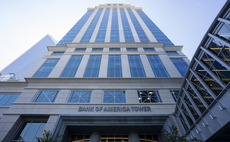The reason why Mother Nature and some civilisations enjoy longevity is down to their relative inefficiency
As a young engineer in the late ‘70s it dawned on me that the reason why Mother Nature and some civilisations enjoy longevity is down to their relative inefficiency. This came to mind as I experien...
To continue reading this article...
Join Computing
- Unlimited access to real-time news, analysis and opinion from the technology industry
- Receive important and breaking news in our daily newsletter
- Be the first to hear about our events and awards programmes
- Join live member only interviews with IT leaders at the ‘IT Lounge’; your chance to ask your burning tech questions and have them answered
- Access to the Computing Delta hub providing market intelligence and research
- Receive our members-only newsletter with exclusive opinion pieces from senior IT Leaders




















